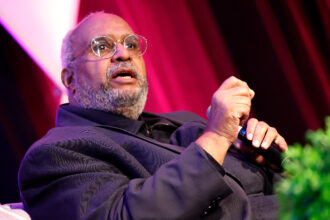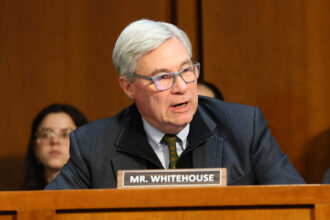Reporting from Barcelona, Spain
Hopes for a strong global deal that would pay poor nations to stop deforestation hit a new low on Friday after negotiators at the climate talks in Barcelona released a draft proposal that lacks teeth.
The new text on reduced emissions from deforestation and degradation, called REDD, contains no international rules to enforce forest protection in countries that would get billions of dollars to implement REDD.
Most of these nations have weak legal enforcement of their own.
That makes the agreement “worth no more than the paper it is written on,” said Rosalind Reeve, of London-based Global Witness. “The text, as it stands, reflects a strong push to receive REDD funds with no oversight.”
“In the words of Abraham Lincoln, a good law without law enforcement is just good advice, ” Davyth Stewart, an attorney for Global Witness, told SolveClimate.
Deforestation contributes about 20 percent of global greenhouse gas emissions, according to UN figures.
World leaders decided at the Bali climate change talks in 2007 to include a forest component to the climate treaty that was to be formalized in Copenhagen in December 2009.
Progress in the REDD negotiations has long been seen as being further along than the sluggish Copenhagen talks overall. But this week in Barcelona, forest advocates expressed disappointment at the lack of advances on REDD.
“We’re in trouble if REDD is the furthest along and is in the best shape,” Andrea Johnson, director of forest campaigns at the non-governmental Environmental Investigation Agency, told SolveClimate.
There was one small victory in the REDD negotiations.
A provision to stop countries from razing carbon-absorbing natural forests to grow palm oil plantations in their place was put back in — only in a much weaker from.
The “conversion safeguard,” as it is known, was removed from the negotiating text at the Bangkok climate talks in October by the European Union.
Instead of being firmly “against the conversion of natural forests to forest plantations,” the new draft promises to “promote actions” that “do not provide incentives for conversion of natural forests.”
Critics argue the language leaves too much room for ambiguity.
“Right now, we have a pretty worthless safeguard and no rules to implement it, at a time when we need strong safeguards and strong rules,” Roman Czebiniak, political advisor on climate change and forests for Greenpeace International, told SolveClimate.
It’s a little bit of a chicken and an egg problem. As Stewart explained, even if the safeguard language gets strengthened and sticks, without compliance, “who’s going to make sure countries are not turning their natural forests into plantations?”
The safeguard language is in brackets in the negotiating text — as is much of the REDD proposal — which means it’s still up for debate. It could be sliced again, or improved.
Forecast for improvements on REDD in Copenhagen in December are mixed.
This text released at the end of Barcelona is not the last word, Czebiniak said. Real safeguard text and real monitoring still could get in. And they just may, he said.
“The public thinks we’re here to protect tropical forests. I don’t see anyone accepting a deal whose purpose does not do that,” he said.
Nathaniel Dyer of Rainforest UK was not as optimistic:
“A REDD deal might end up as a greenwashing exercising if there is no legally binding climate change agreement at Copenhagen.”
See also:
Barcelona Climate Talks: Adequate Forest Protection Hinges on 10-Word Phrase
Putting a Value on Preserving Forests, Not Clearing Them
Forests Loom Large at Governors’ Global Climate Summit
Seeing the Forest for the Trees: Shaping Financing to Prevent Deforestation
Greenpeace Says Model Forest Protection Project Proves REDD Offsets Don’t Work
About This Story
Perhaps you noticed: This story, like all the news we publish, is free to read. That’s because Inside Climate News is a 501c3 nonprofit organization. We do not charge a subscription fee, lock our news behind a paywall, or clutter our website with ads. We make our news on climate and the environment freely available to you and anyone who wants it.
That’s not all. We also share our news for free with scores of other media organizations around the country. Many of them can’t afford to do environmental journalism of their own. We’ve built bureaus from coast to coast to report local stories, collaborate with local newsrooms and co-publish articles so that this vital work is shared as widely as possible.
Two of us launched ICN in 2007. Six years later we earned a Pulitzer Prize for National Reporting, and now we run the oldest and largest dedicated climate newsroom in the nation. We tell the story in all its complexity. We hold polluters accountable. We expose environmental injustice. We debunk misinformation. We scrutinize solutions and inspire action.
Donations from readers like you fund every aspect of what we do. If you don’t already, will you support our ongoing work, our reporting on the biggest crisis facing our planet, and help us reach even more readers in more places?
Please take a moment to make a tax-deductible donation. Every one of them makes a difference.
Thank you,











